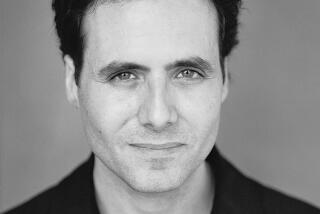Seymour Lipset, 84; explored quirks of U.S. culture, politics
- Share via
WASHINGTON — Seymour Martin Lipset, a leading scholar of democracy and one of the most influential social scientists of the last half-century, died Dec. 31 at a hospital in Arlington, Va., of complications from a stroke. He was 84.
Lipset explained the connection between economic development and democracy, an insight that earned him immediate attention.
He also studied the nature of political extremism, how the core American values of equality and achievement keep class conflict in check and what other countries have to teach the United States.
“Those who only know one country, know no country,” he wrote. Yet the United States, born from a revolution, differs from other nations that came to democracy by other routes, he said.
Lipset’s eclectic interests in the peculiarities of U.S. political culture -- and his clear prose -- proved irresistible to journalists, policymakers and academics.
Reporters sought him out to explain issues as varied as major changes in politics and why jokes about gays have become verboten.
Journalist Martin Walker of the Guardian newspaper of London called Lipset “one of America’s most useful intellectuals.”
“More than any other figure, with the possible exception of John Kenneth Galbraith, he plausibly explains to us baffled aliens why you Americans are so very odd,” Walker wrote in a review of Lipset’s book “American Exceptionalism” (1996). “He tackles the really interesting questions that seldom seem to occur to the rest of you; why America never developed a serious socialist movement; why you exhibit almost Iranian levels of religiosity; why Canada is so different; and why you so hate turning out to vote but so enjoy joining voluntary organizations.”
The author of more than 20 books and editor of two dozen more, Lipset was the only person to have been president of both the American Sociological Assn. and the American Political Science Assn. One of his early books, “Political Man” (1960), sold more than 400,000 copies and was translated into 20 languages. Another, “The First New Nation” (1962), was a finalist for the National Book Award.
Lipset “inspired, taught and mentored several generations of leading political scientists and sociologists,” Larry Diamond, a senior fellow at the Hoover Institution, said two years ago when the National Endowment for Democracy and the Canadian Embassy launched a lecture series in Lipset’s name.
Diamond praised Lipset’s strong belief in “reason, moderation, tolerance, pragmatism and restraint as the bedrock values of democracy and decent society” and his “constant search for equilibrium -- between consensus and conflict, between ideological extremes, even between political parties.”
The excesses of American culture are inextricably tied to its ideals, Lipset wrote. “We are the worst as well as the best, depending on which quality is being addressed.... Those who focus on moral decline, or on the high crime or divorce rates ignore the evidence that much of what they deplore is closely linked to American values which presumably they approve of, those which make for achievement and independence.”
Born the son of Russian Jewish immigrants in New York, Lipset graduated in 1943 from City College of New York, where he was an anti-Stalinist leftist and later became national chairman of the Young People’s Socialist League. He left the Socialist Party in 1960 and described himself as a centrist, deeply influenced by Alexis de Tocqueville, George Washington, Aristotle and German political theorist Max Weber.
He taught at the University of Toronto before receiving a doctorate in sociology from Columbia University in 1949.
Lipset taught at Columbia, UC Berkeley, Stanford University and Harvard University, where Theda Skocpol, now a Harvard professor, was one of his students.
“Of all the professors I had, he was the most humanly decent, a real mensch,” Skocpol said. “Long before it was fashionable to support the careers of women, he did, in a matter-of-fact way. People saw him in different places on the political spectrum ... but he was completely open to supporting people regardless of their political beliefs.”
More recently, Lipset was a senior fellow at the Hoover Institution at Stanford and a professor at George Mason University in Fairfax, Va. He was also affiliated with the Woodrow Wilson International Center for Scholars and the Progressive Policy Institute.
Lipset was a former president of the International Society of Political Psychology, the Sociological Research Assn., the World Assn. for Public Opinion Research and the Society for Comparative Research. He was a member of the National Academy of Sciences, the American Philosophical Society, the National Academy of Education and the American Academy of Arts and Sciences.
Survivors include his wife of 16 years, Sydnee Guyer Lipset of Arlington; three children from his first marriage, David Lipset of Minneapolis, Daniel Lipset of Boston and Cici Lipset of Palo Alto; and six grandchildren.
More to Read
Sign up for our Book Club newsletter
Get the latest news, events and more from the Los Angeles Times Book Club, and help us get L.A. reading and talking.
You may occasionally receive promotional content from the Los Angeles Times.






